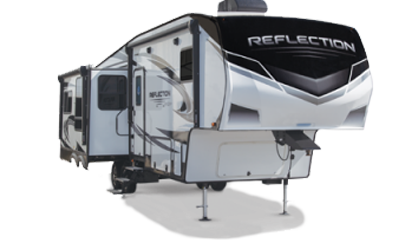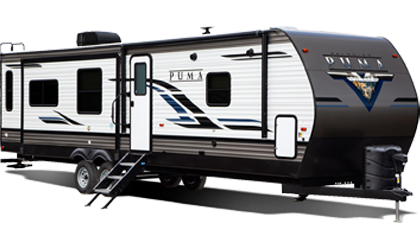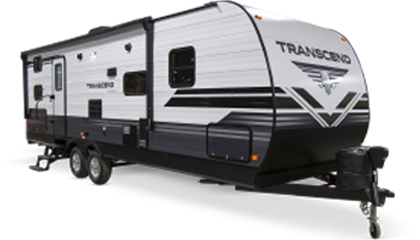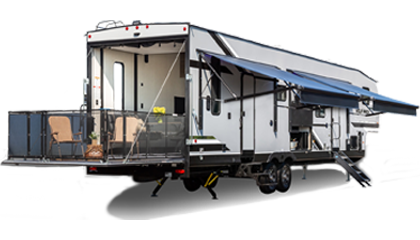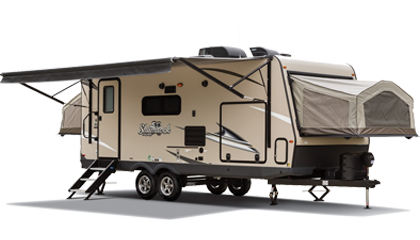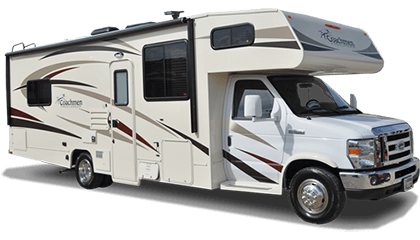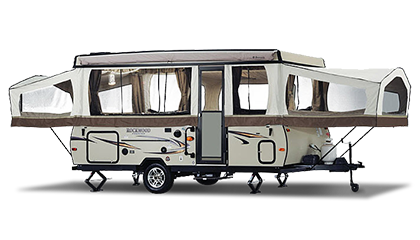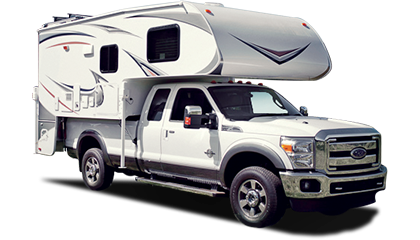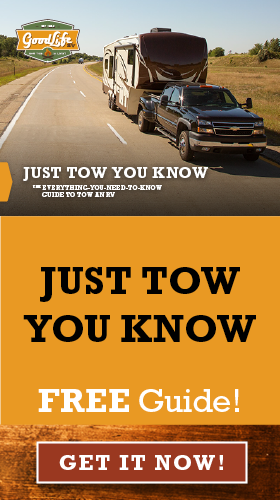IS Your RV Overweight?
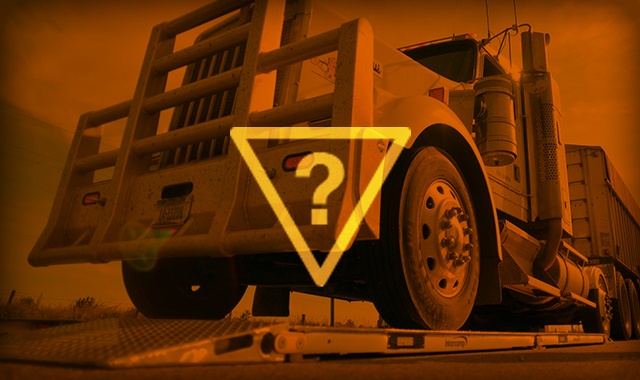
No one likes to think about weight. From the doctor’s office to how much stuff you should cram in your RV on your next road trip, no one likes being weighed. But it’s important (both for your health and safety), and you don’t want to be bogged down with extra weight when you’re on the road. To keep things from getting a little heavy at your campsite, you should weigh your RV as you set out for every trip. It’s easy to figure out how much your trailer weighs while you’re on the road, and a no-brainer to keep everyone safe.
Why Is Weight Important
A whopping 56% of RVs that weigh in are overweight. Don’t be one of them! Not only is it good practice to keep your RV from wearing out too soon, but it also keeps your passengers safe.
Overloaded RVs are the single biggest reason for accidents among RVers. When an RV weighs more than it should, it puts more stress on your tires, axles, brakes, engine, transmission and other important parts of your towing vehicle and trailer.
Driving while overburdened also means becoming a risky driver. You’re driving down the road, and suddenly there’s a huge “POP!” as you see your tire sling rubber all around behind you. But that’s the least of your worries — you now find yourself skidding down the road on only three tires trying to control your rig to a stop on the shoulder. Blowouts can make it hard to control your rig, and it’s distracting and dangerous for traffic around you as they try to swerve around the chaos that comes in the aftermath. Heavier RVs also mean longer than normal braking times, increasing your risk of an accident.
How To Weigh Your RV
The easiest way to find out if you’re towing all that weight safely is to stop at a CAT scale while you’re on the road. Make an appointment ahead of time so they know to expect you (plus it gets you in and out more quickly). You should do this at the beginning of every trip and whenever you feel like it’s necessary. This usually costs around ten dollars the first time and only a few bucks for each time after, well worth the time and minimal investment.
One thing to mention while we’re here: you aren’t required to stop at commercial weigh stations while you’re on the road (unless you’ve got a towbar), but if you’re pulled over by one of the boys in blue and they suspect you’re overweight, your RV can and will be weighed. If you’re found to be overweight, you can be fined. Generally, these fines are on a per pound overage basis, but they vary by state.
As if the dangers associated with towing an overweight vehicle weren’t enough, check this out. If you’re in an accident and your RV is overweight, you can be found liable for the accident and your insurance doesn’t have to cover your claim because of the extra weight. All the more reason to take this weight thing seriously!
Alternatives To Weigh Stations
Full-timers or RVers that want to check their vehicle weight before hitting the open road can purchase portable RV scales for a pretty penny, a REALLY pretty penny, and take them with you. If you’re going to invest in them, it’s important to learn how to use these scales correctly, so you know you’re getting an accurate number each time you weigh. Once you’ve got the right technique, you’re golden! These systems aren’t cheap, but for those die-hard RVers that want to be sure they’re abiding by the letter of the law, they can be all yours and let you avoid the lines at the weigh stations.
Weight is a topic that no one wants to talk about. Whether it’s personal weight or the weight of all your stuff, it’s something that needs to be talked about. Keeping everyone safe on the road is everyone’s job and doing your part can mean a longer, happier Good Life for you and your crew.

